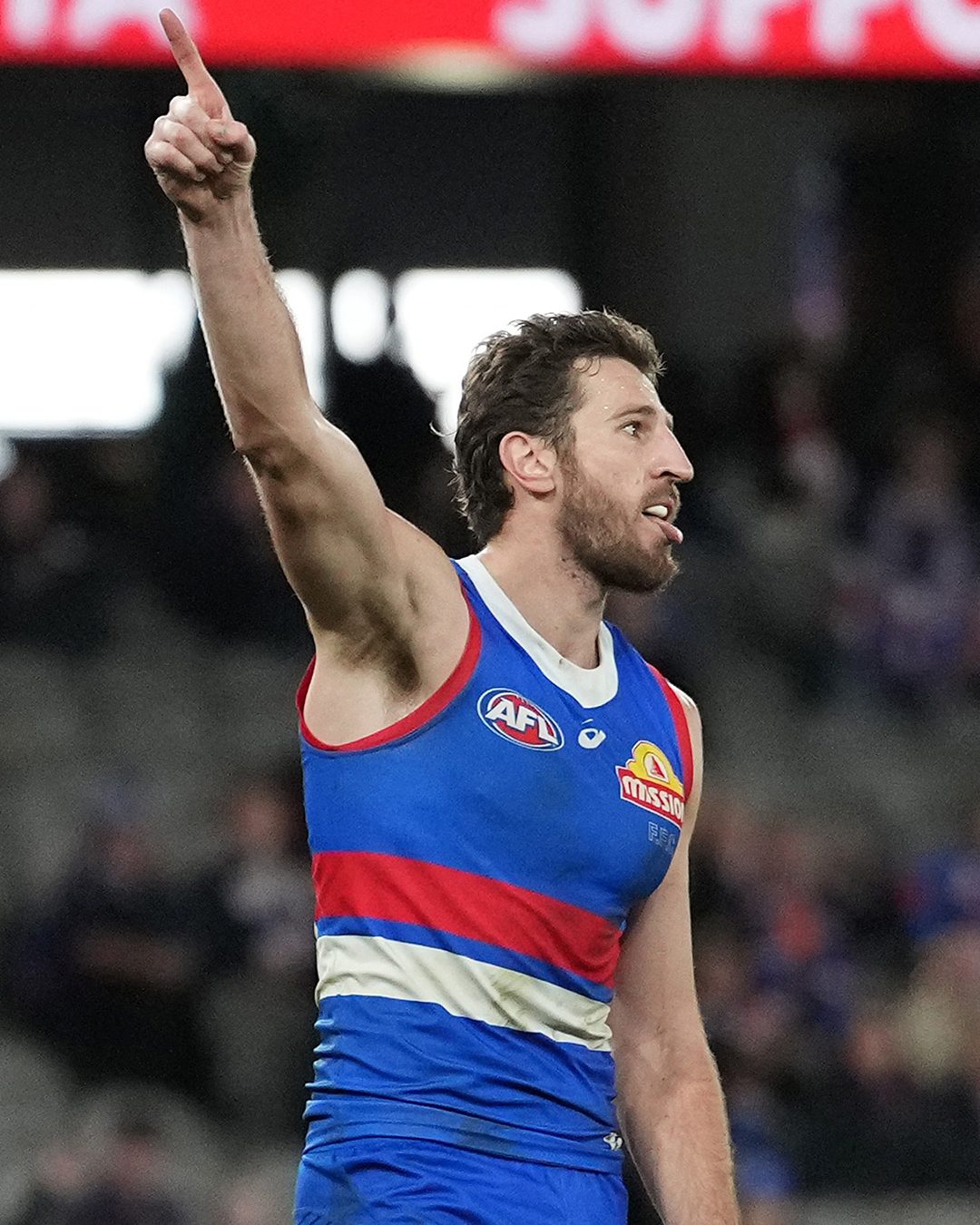AUSTRALIAN RULES FOOTBALL is a game of enormous highs and tremendous lows. As a premiership winning player, Western Bulldogs captain and two-time Brownlow Medal runner-up Marcus Bontempelli understands the high points better than most. But as someone who has faced defeat on that final Saturday in September, he’s also been forced to confront the other side of the ledger.
Emotions run high in professional sport, and how players deal with those emotions can make or break their careers. Unpacking those emotions was on the agenda this week at a live panel discussion hosted by Toyota, in celebration of the tenth edition of the annual Toyota Good For Footy Raffle, which has raised more than $11 million for local football clubs across the country since its inception. Among the star-studded panel was Bontempelli, alongside premiership winning Collingwood coach Craig McRae, AFL CEO Andrew Dillon, and 2023 AFLW best and fairest winner Monique Conti.

Bontempelli, for one, considers a sound mind to be on par with a formidable body in levels of importance, if you want to last in the AFL. “It’s naturally a physical game where you have to spend a lot of time training and that can wear you down,” he tells Men’s Health. “But the mental side of it is what keeps you going, keeps you coming back and helps you cope through the more difficult times.”
While he’s had his fair share of success, Bontempelli’s career hasn’t been without its difficulties. Specifically, the five-time All Australian team member points to his rookie season, when he struggled to adapt to the professional game. In those days, it was those close to Bontempelli that helped him push through. “The thing is that you can’t do it alone,” he says. “I was really lucky to have been drafted to a team in Melbourne, where I grew up, so I always had family and people who could help me get through those early days when things were difficult.”
Bontempelli recognises that not all players are afforded the luxury of playing close to home, nor do they all eventually adjust to the game, as he did. “Not everyone has that support,” he says. “I’ve played with guys who unfortunately haven’t been able to cope and have even left the game.” Bontempelli is speaking, as he clarifies, of former number one draft pick Tom Boyd, who sensationally walked away from the game in 2019 at just 23 years of age after a long battle with injuries and struggles with his mental health.
Boyd’s case is a sobering reminder that sport isn’t as glamorous as it might appear on screen. Athletes go through the same challenges as the rest of us, with the key difference being that our darkest moments aren’t broadcast to a national audience. Bontempelli is firm in his belief, however, that the league has made substantial progress in supporting players’ mental health. “We’ve come a long way in the last ten years,” he says. “You’d suspect that every team has a player welfare officer now.”
Bontempelli knows the Bulldogs’ player welfare officer by name, and believes he plays a crucial role in helping members of his team improve their lives both inside and outside of football. “The average footballer’s career only lasts four or five years, or maybe not even that long. Things can come to an end pretty quickly, and a freefall can happen,” Bontempelli says. “You need strong plans for what you’ll do post-football, and that’s where a lot of guys will struggle, but initiatives like this are making it easier.”

INSTAGRAM | @marcus_bontempelli
Making long term plans is necessary, but it’s week to week that AFL careers are either forged or fail. Often, how players deal with a loss or a downturn in performance can dictate how long they’ll last in the league. As far as setbacks go, few are more significant than a grand final loss, which Bontempelli experienced in 2021. He didn’t let that disappointment get the better of him though. Instead, he treated it as he would any other difficult outing.
“There’s two schools of thought when dealing with a tough game,” Bontempelli says. “I can either just accept that I didn’t play well and try to focus on what I can do to improve, or I can have short term memory and just put it in the back of my mind and try to come back better next week.” Bontempelli tends to opt for the former. “I’ve always found comfort in accepting shortcomings and focusing on what I can do better, while confronting bad performances and processing them. It’s almost like putting them to bed. It feels cathartic.”
It’s that approach that Bontempelli will utilise as his Bulldogs make a push for the finals. Currently sitting 11th, the Bulldogs are within fighting distance of the top eight. Bontempelli believes they can fast-track their rebuild and get there. “We’ve had some strong wins recently, but by no means can we rest up now. We need to keep challenging teams and earn our spot. I think we can get there, but there’s no use talking about it, we’ve got to do it.” But even if the Bulldogs can’t make the push, Bontempelli will be ready, willing and able to deal with the setback head on. He’s fortunate he knows how.

INSTAGRAM | @westernbulldogs
Related:
Bobby Hill on chasing another premiership, overcoming cancer and the importance of Indigenous Round















